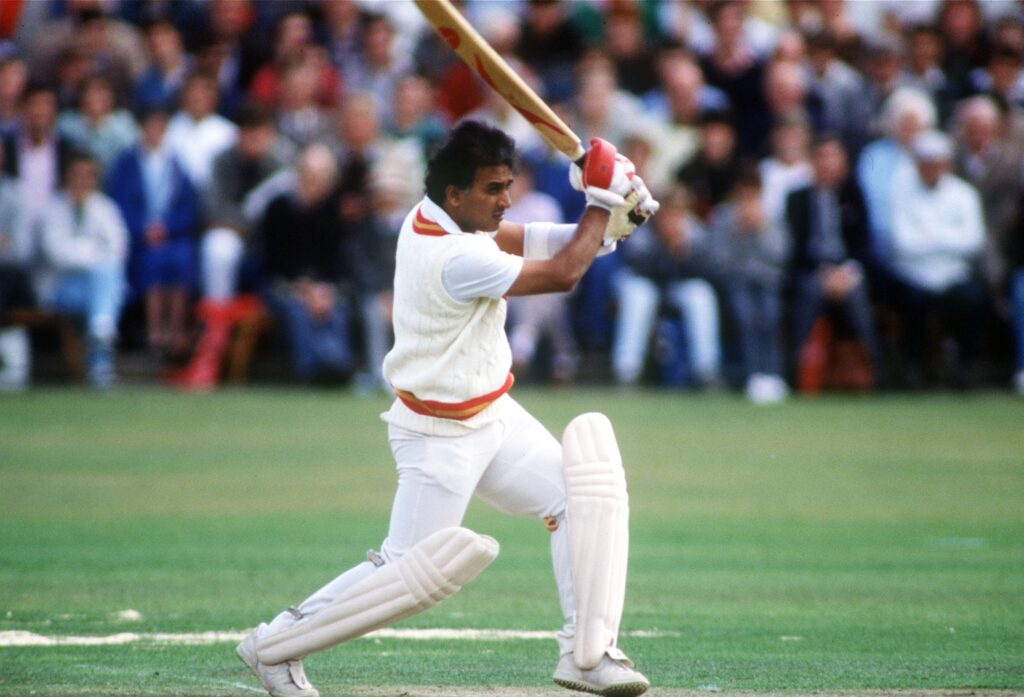
He has more than 50 of his 74 years at the forefront of international cricket. From 1971 to 1987 as one of the world’s best openers, and within three years after retirement, he became a popular TV commentator. It’s been well over three decades with the microphone now. Playing long innings comes naturally to Sunil Manohar Gavaskar.
It was during one such marathon effort in 1979 that I first heard of him. India needed 438 to win a Test at The Oval. It was in the evening, and my parents were listening to the radio on the balcony. I also remember discussions that India had no chance of saving the match. Gradually, the talk and expressions changed. Being a six-year-old, I could not fully comprehend what was happening, but it was clear that defying all odds, India were in a position to win and Gavaskar with a knock of 221 was responsible for that.
Gavaskar retired when I was 14. I did not really watch him bat at a time of my life I would have liked. However, it was clear from whatever I could gather from newspapers, people, watching TV and listening to radio commentary that Gavaskar was one of the all-time greats. Everybody used to say that if Gavaskar gets runs, India have a chance. For kids just into cricket, he was a symbol of security.
Those were the ‘Days’
My real introduction to Gavaskar was through Sunny Days. Books written by cricketers were a rarity in India those days, so to be able to grab one was a big deal. And the way he chronicled his early days in cricket occupies a special place in memory. It was easy to read, the language simple, there was hardly any jargon. Situations were described without elaboration, but with just the right amount of detail. There were plenty of anecdotes. To cap it all, the book came wrapped in humour. It was fun reading all the way.
‘Runs and Ruins’ and ‘One Day Wonders’ followed, and sadly, Gavaskar stopped writing books after that. Probably TV and other commitments consumed a lot of his time. Maybe he was not interested in books anymore. Still, going by his published work, Gavaskar is a methodical writer. Unlike most other sportspersons, he writes his own books or columns, instead of someone else doing it on his behalf. His memory is sharp and he can narrate conversations or incidents from decades ago. Traces of the discipline synonymous with his batting can be found in his books. There is clarity of thought, and he takes the least complicated way to come to the point.
Gavaskar’s writing reminds me of an incident. This was in 2005, and we were in the press box at the Harare Cricket Club Ground in Zimbabwe. I was there as a newspaper reporter. In between commentary shifts, Gavaskar used to come to the press box to write his columns. He would take 30-45 minutes and during that time, his eyes would not move from the computer screen and the keyboard. He would just switch off from his surroundings, as if nothing else existed. Watching him was a lesson in concentration and focus, traits that helped him amass runs against the best of bowlers.
Jack Fingleton, the former Australia opener, wrote about Don Bradman in his book ‘Batting From Memory’. Fingleton wrote that to see Bradman have lunch was worth a watch. His tidiness, neat and organised way of going about it and unhurried manner were a lesson for his teammates, who could apply these characteristics on the field of play. Gavaskar’s relaxed yet intensely focussed way of writing appeared somewhat similar to what Fingleton meant.
One day at the Harare press box, Gavaskar sat next to me. As usual, I was admiring his attentiveness. Suddenly, he told me to look at his computer. I was taken aback. He had written for about half an hour, and the screen was blank. He must have pressed Control A (select all) instead of Control S (save) and then accidentally deleted it, I thought. I asked him to press Control Z (undo). Luckily, the whole thing came back. He heaved a sigh of relief and gave me a smile with a thumbs up.
Presence of mind
Gavaskar is a witty person, excellent mimic and has tremendous presence of mind. In 2019, a day before the India-New Zealand World Cup semi-final, he was seated on a chair in the narrow corridor between the media centre and dining room at Old Trafford. He was busy with his phone. Suddenly a group of around 20 Indians appeared from nowhere. They were from the ICC’s sponsor companies and on a guided tour of the venue with a guide and all.
Gavaskar was hot property for them and he had no time to flee. He quietly pulled his cap down to cover his face and kept staring at his phone without lifting his head even once. All that the visitors noticed was a man in a cap sitting on a chair. This was presence of mind. He didn’t waste a second to chalk out his plan of action, and did it with minimal movement or anything that drew attention.
Here’s wishing Sunil Gavaskar a longer innings.



